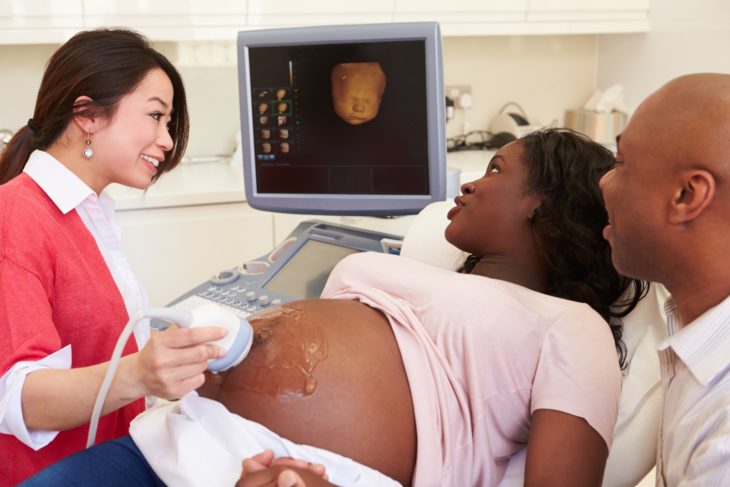
Every four and a half minutes, a baby in the United States is born with a birth defect. The definition of birth defects is something which is a visible, internal or chemical abnormality in a newborn child. Very often the causes are genetic or chromosomal, however there are other causes, as well. Sometimes the reason for a birth defect is unknown.
Prenatal and genetic screenings offer an insight to parents-to-be about the possible risk for birth defects. Chromosomal defects and genetic conditions run the gamut from mild to severe but knowing the status of both partners as a potential carrier, be it a family predisposition to certain conditions and diseases, or a chromosomal risk, prior to pregnancy helps parents make informed decisions.
Some birth defects have another origin aside from family history. There are risks associated with certain medications, behaviors and lifestyle factors. The age of one or both biological parents may be even more likely to pose a risk. Environmental toxins can also cause birth defects, as well as untreated viral or bacterial infections and inadequate prenatal care.
Environmental Factors That Increase the Risk for Birth Defects
Outside factors increase the risk of your baby developing birth defects. Depending on the point of exposure, you can miscarry, your baby may develop a defect or no effect at all. Some exposures, such as exposure to certain medications that the mother needs to manage a chronic condition such as diabetes, certain skin conditions and health conditions involving changes in emotional stability, behavior or thinking, carry a risk for birth defects.
There are environmental toxins known to pose a risk for pregnant women. Substances like flame retardant chemicals, phthalates and bisphenol-A (BPA) are particularly dangerous to a developing fetus. Chemicals found in flooring and pesticides pose a threat, as well. Exposure to some toxins also impacts male fertility by weakening sperm and raising the risk of birth defects. When trying to conceive plan to avoid exposure to all environmental toxins.
Infections
Certain infections in pregnancy harm the developing fetus. Infections such as toxoplasmosis, rubella and chicken pox are particularly harmful. Make sure you are up-to-date on your vaccinations before you become pregnant or avoid public places until your physician feels there is no risk.
Lifestyle
For those couples who are actively trying to conceive or undergoing treatment for infertility, it is a good idea to make positive changes to your lifestyle. Avoid alcohol, cigarette smoking, marijuana and illegal drugs altogether. Fetal alcohol syndrome is a very serious birth defect that interferes with a child’s mental and physical development.
Your weight poses a risk for your baby to develop birth defects, as well. Women who are obese increase the risk of their babies developing heart and neural tube defects. Babies born to women who are underweight are at risk for premature birth and low birth weight.
Age
The risk for giving birth to a baby with a chromosomal disorder rises with maternal age. A woman in her 20s has a very low risk, about 1 in every 1250 births. But, for a woman in her 40s the risk increases to 1 in 100. Studies have shown an increase in the potential for neural tube defects (spina bifida, for example), cleft palate or lip, congenital inguinal hernia and heart defects in those babies born to women of advanced maternal age (over 35).
Fathers are not immune to posing age related risks. Children who have heart malformations, cleft lip or palate, autism, low IQ, schizophrenia and bipolar disorder, for example, are sometimes the result of advanced paternal age.
How Can Birth Defects Be Prevented?
Often, birth defects simply are not preventable. However, there are some actions you can take to lessen your baby’s risk.
- Schedule genetic counseling for you and your partner.
- Make sure you and your partner have up-to-date vaccinations.
- If you suspect you may have an STI schedule a test and, if necessary, begin treatment.
- Discuss any medications you take, including over-the-counter meds and nutritional and herbal supplements, with your physician.
- Ask your doctor for a supplement
- Eat a healthy diet and get to a healthy BMI.
- Don’t smoke and avoid secondhand smoke.
- Do not take illicit drugs.
- Exercise regularly.
- Get plenty of restorative sleep.
- Get early prenatal care. Of course, prenatal care shouldn’t be an issue when you’re going through fertility treatment.
Reach Out for Support and Answers
If you are concerned about birth defects and the risk to your future family contact LA IVF and schedule a consultation. Our compassionate team members are eager to help you have a happy, healthy pregnancy.










